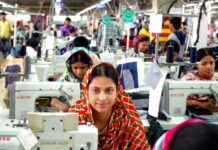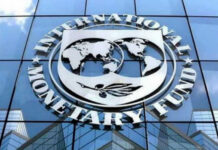Small and medium sized enterprises need to be supported more

The Center for Policy Dialogue (CPD) has said that Bangladesh’s economy is going through an “uneven recovery” with larger firms bouncing back at a faster pace and small and medium sized enterprises (SMEs) falling behind. This is not good news, as SMEs are an important sector of the economy that provides employment to people from the lower strata of society. These are the people who have been affected disproportionately during the pandemic and who have not received adequate government support from the stimulus packages.
Soon after the pandemic had reached Bangladesh, the government announced a stimulus package worth Tk 1,21,353 crore. This package involved increasing government expenditure, providing loans at low interest rates, expansion of social safety net programmes and raising the money supply. It attempted to facilitate the economic recovery process by offering cheaper credit alongside monetary easing. However, it is only the large industries that were more successful in accessing the package’s benefits, compared to their smaller counterparts. As a result, CPD researchers believe that the economy now needs a second round of stimulus packages for successful recovery.
SMEs account for 25 percent of our country’s GDP. There are over 8.66 lakh SMEs in Bangladesh, which is 11 percent of the total number of companies. The SME sector generates 30 percent of total employment in the country. Almost 23,000 small and 3,000 medium sized enterprises are involved in exports, either directly or indirectly. Despite contributing such significant amounts of labour and capital to the economy, this section of the business community faces enormous challenges in getting support from both government and non-government financial institutions. Most of the policies regarding the operation of business in our country are devised favouring the large corporations, while the financial institutions are interested in granting loans to the big companies most of the time. As a result, SMEs have to suffer tremendous setbacks in terms of production, marketing and sales of their products.
Continuation of the same packages with an extended timeline is not going to produce the intended results. This is why a second stimulus package with a strong focus on the SME sector has to be announced. This means the government and Bangladesh Bank must make sure that SMEs get access to credit facilities. The health of the banking sector is also a major factor in the recovery process. As the CPD report has mentioned, the present state of excess liquidity in the banks may lead to banks giving out risky loans, which will in turn result in more non-performing loans and high inflation. Thus, poorly governed banks should not be part of the Covid-19 related liquidity support packages.









